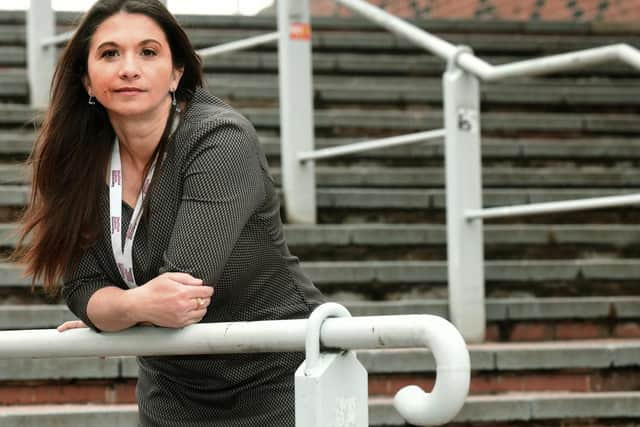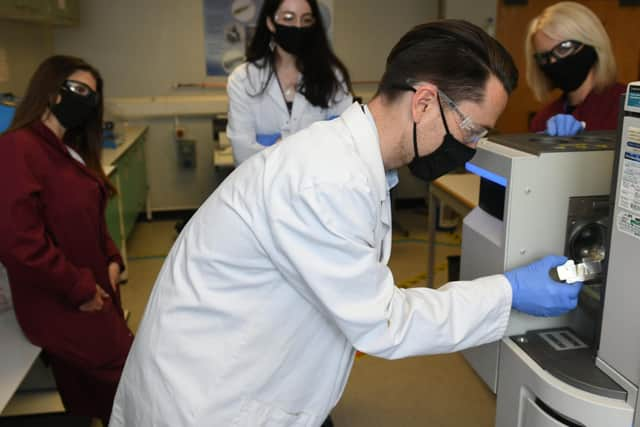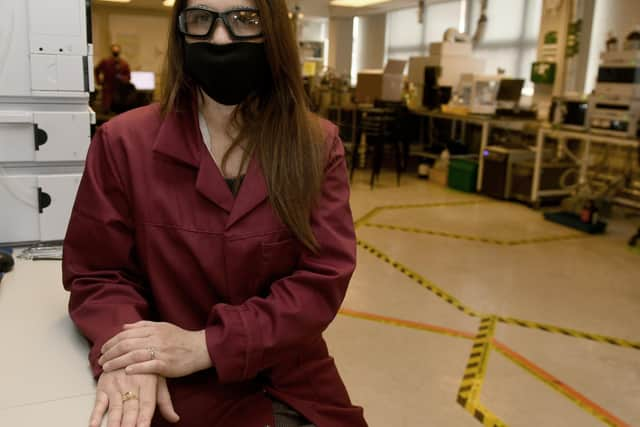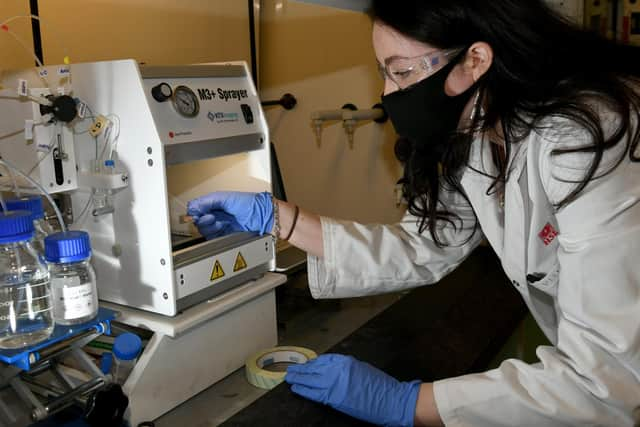Call for fingerprint scan that can detect drugs and alcohol to be rolled out across the country to help in fight against crime
Simona Francese, a professor of forensic and bioanalytical mass spectrometry, has developed the ground-breaking model to help identify vital DNA evidence which has been employed in major criminal investigations globally.
The 45-year-old told The Yorkshire Post that the technology, which can detect food, drink and drugs in fingerprint, could provide a key new resource for police forces across the country to help alleviate pressures on forensic departments.


Advertisement
Hide AdAdvertisement
Hide AdProf Francese, who is based at Sheffield Hallam University, said: “The technology is capable of helping the police to narrow down the number of suspects and better understand a crime scene.
“Still with the DNA available today - fingerprints play an incredible role in convicting criminals.
“It is so important for fighting crime going forward.”
Prof Francese adapted a technology called Matrix Assisted Laser Desorption Ionisation Mass Spectrometry Imaging (MALDI-MSI) to detect human blood, distinguishing it from animal blood and other biofluids whilst enabling subsequent DNA-typing from enhanced fingerprints.


The technology, which produces hundreds of images of molecules, has helped Prof Francese on a number of global crime cases including a murder case in Europe, as the technique is able to provide a better understanding of crime scenes from blood evidence.
Advertisement
Hide AdAdvertisement
Hide AdThe information can provide crime investigators with a wealth of biometric information about a criminal's activities prior to committing a crime.
This can relate to the detection of drugs, hair and cleaning products, condom lubricants and blood, with the possibility to reliably confirm the presence of blood and its origin, whether human or animal.
Prof Francese, who is one of 60 leading world researchers in the International Fingerprint Research Group - an organisation composed by law enforcement agencies and academia across the world, said: “It compliments current police work…with our technology we can provide a range of information on the suspect themselves including about their lifestyle, and actions prior to committing the crime.


“It can be very important because it may provide indications on the state of mind of the individual while committing the crime - in a court case this is very important.”
Advertisement
Hide AdAdvertisement
Hide AdLast month the justice secretary, Robert Buckland, revealed at present, the backlog in the crown courts still sits at an all-time high of 56,875 cases.
While a model by the Institute for Government has found that, when adjusted to match the same case complexity as the pre-pandemic backlog, it now amounts to the equivalent of 70,000 cases.
The Yorkshire Post approached the Home Office for the backlog number of forensic investigations for fingerprint and blood work and the amount of funding allocated.


For the future Professor Francese hopes to expand her team of three at Sheffield Hallam University while she stressed the need to be aware and exploit this technology in major crimes.
Advertisement
Hide AdAdvertisement
Hide AdShe said: “A priority for the Home Office is to derive additional intelligence from fingerprints.
So this is exactly how you go about depriving that information.
“I’m aiming to try and change the mindset and long term vision for what forensics can look like in terms of fingerprints and ensuring if forensic opportunity is there - as there is - the home office and policing know about it and exploit it when they need it.”
The Government has pledged to ensure forensic science remains at the forefront of the fight against crime with a multi-million pound investment in new technology.
Advertisement
Hide AdAdvertisement
Hide AdThe Home Office said more than £28m last year helped develop forensic services, and a further £25.6m in the current financial year will also be invested.
A spokeswoman for the Home Office said: “Our aim is to make forensics better serve the public by bringing criminals to justice, which is why we supported the Forensic Science Regulator Bill to drive up standards.”
__________
Support The Yorkshire Post and become a subscriber today.
Your subscription will help us to continue to bring quality news to the people of Yorkshire. In return, you'll see fewer ads on site, get free access to our app and receive exclusive members-only offers. Click here to subscribe.
